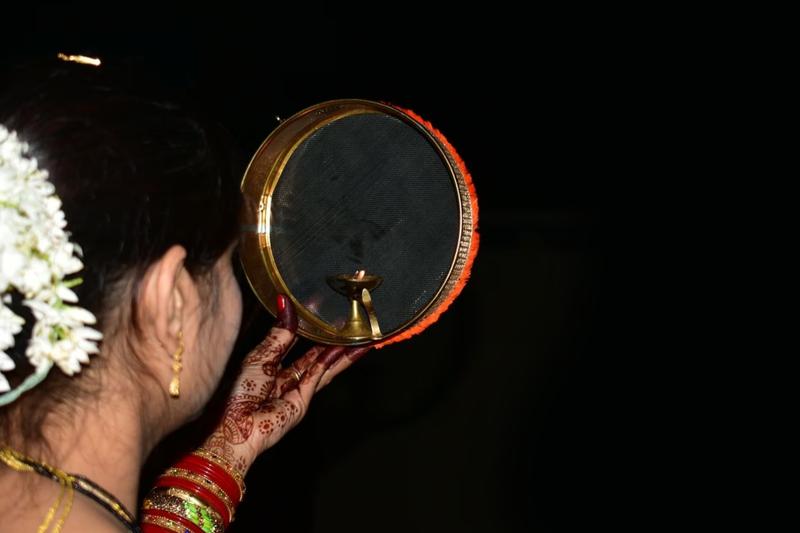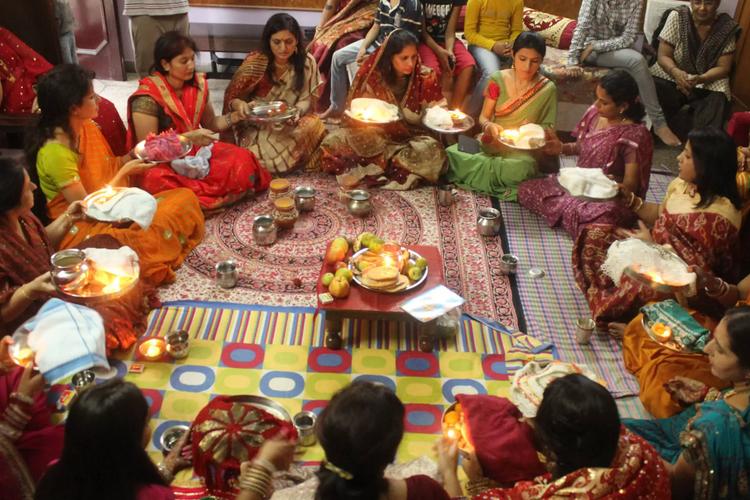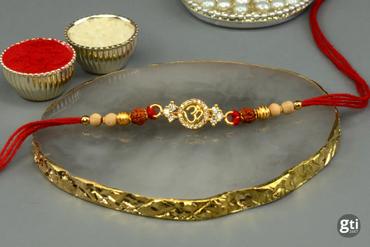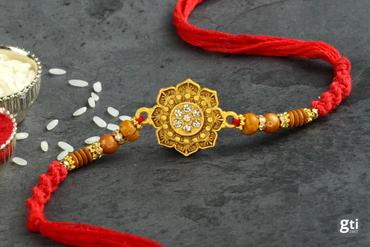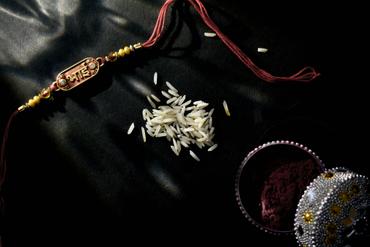Most of you know or must have heard of the rituals and traditions of Karwa Chauth but do any of you know the historical significance of Karwa Chauth? The name Karwa Chauth is formed of two words 'Karwa' and 'Chauth', where Karwa means earthen oil lamp and Chauth means four. The day falls on the fourth day of Kartik month in the Hindu calendar. This is also a harvest time of year when people like to celebrate and meet friends and relatives. This festival also coincides with the Diwali celebration, which comes nine days after Karwa Chauth. Although Karwa Chauth was initially celebrated as a special bond shared between a bride and a woman in her in-law's household, gradually new aspect of celebration emerged out of this ancient custom. Today, it is observed more as an occasion to seek blessings from the almighty for the long life and overall well-being of one's husband. This is made more significant by presenting gifts like karwa chauth thali set as the symbol of admiration to the husband and wife. Karwa Chauths gifts express more than the love and care that the relations of husband, wife, and Mother-in-law have to offer for each other. People of all relations express their admiration for the will of the devotees if you wish to even from afar.
The history of Karwa chauth dates back to ancient times. It is believed that it was originally followed as ritual, signifying the relationship between a bride and some other woman in her in-laws household. As a woman leaves her home after marriage she needs a friend in her new household with whom she can share all her problems and secrets. By observing these ritual that woman becomes her sister for life and their relationship is solemnized. Gradually it drifted away from it's original meaning and many legends and folklores were associated with this festival. Today Karwa Chauth is observed as a day of fasting for all married women for long life of her husband.
The beautiful queen Veervati grew up with seven brothers and was very well loved and protected. After her marriage she was fasting for her husband on Karwa Chauth in her own home and was dying of hunger and thirst. Her brothers couldn’t bear the plight of their sister and created a false moon with a mirror in a pipal tree. The sister mistook it for the moon and broke her fast. The moment she ate, word arrived that her husband, the king, was dead. Heartbroken, she wept through the night until her shakti compelled a Goddess to appear. The Goddess revealed how she had been tricked by her brothers and instructed her to repeat the Karwa Chauth fast with complete devotion. When Veervati repeated the fast, Yama was forced to restore her husband to life.
The belief in this fast and its associated rituals goes back to the pre-Mahabharata times. Draupadi, too, is said to have observed this fast. Once Arjun went to the Nilgiris for penance and the rest of the Pandavas faced many problems in his absence. Draupadi, out of desperation, remembered Lord Krishna and asked for help. He asked her to observe the ritual of Karwa Chauth which she did devotedly and then the Pandavas were able to overcome all their problems.
A woman named Karwa was deeply devoted to her husband. It gave her shakti. While bathing at a river, her husband was caught by a crocodile. Karva bound the crocodile with a cotton yarn and asked Yama to send the crocodile to hell. Yama refused. Karwa threatened to curse Yama and destroy him. Yama, afraid of being cursed by Pativrata wife, sent the crocodile to hell and blessed Karva's husband with a long life.
When Lord Yama came to procure Satyavan's soul, Savitri begged him to grant him life. When he refused, she stopped eating and drinking and followed Yama who carried away her dead husband. Yama said that she could ask for any other boon except for the life of her husband. Savitri asked that she be blessed with children. Yama agreed. Being a 'Pativrata' wife, Savitri would never let any other man be the father of her children. Yama was left with no other choice but to restore Savitri's husband to life.
